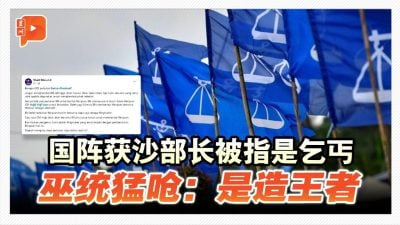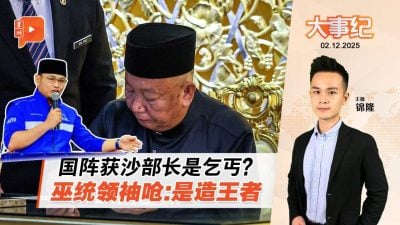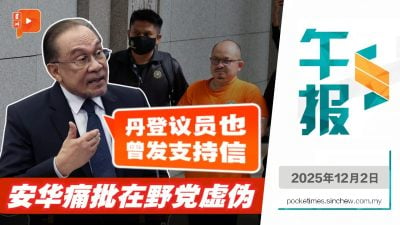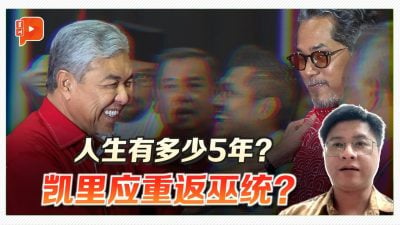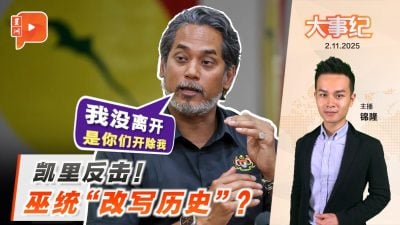This should be a time for self-healing for a badly divided party in order to start anew, not to get rid of dissidents!
It was totally anticipated for the Umno leadership to ax the dissidents before the party elections.
President Ahmad Zahid’s authority was being challenged for failing to lead the party to victory in the 15th general election, unable to recapture lost seats and chalking the party’s worst ever electoral performance in history (winning only 26 parliamentary seats).
As such, it was within everyone’s expectation that Zahid would do something against the dissidents before the party elections.
But what shocked everyone was that his actions were too heavy-handed, sacking former health minister Khairy Jamaluddin, and suspending former defense minister Hishammuddin Hussein, former Umno information chief Shahril Hamdan, former Johor exco Maulizan Bujang and former Jempol MP Mohd Salim Mohd Shariff, for six years.
As for supreme council member Noh Omar who was also suspended for six years, he was sacked later after challenging the president to remove him.
Now the question: was Noh Omar’s sacking constitutional?
While Zahid’s merciless actions could have a deterrent effect on potential dissenters, they could backfire!
It is not uncommon for a party’s leader to purge dissident voices within the party.
Basically, given the absolute power of the party leadership, the dissidents will have no choice but to accept any decision made by the party’s top leaders, or risk disciplinary action.
However, the party leadership will still have to act within the confines of the party’s constitution and due process so as to minimize damage to the party’s image as well as rift within the party.
Even though Khairy et al. have done something contravening the party’s rules, that does not mean the president can mete out any form of punishment he desires, as he still must go according to due process.
The actions taken against Khairy et al. have aroused tremendous controversies. Khairy has accused the party of not conforming to due process in sacking him, while former PM Ismail Sabri said he did not agree to the party’s decision of sacking and suspending these leaders, arguing that the process did not comply with the principle of “natural justice,” as those sacked or suspended were not given an opportunity to defend themselves.
Although information chief Isham Jalil has later explained that the process of sacking and suspending a member only needed to be done within the supreme council, by right Khairy and others should also be given the opportunity to defend themselves.
Khairy was sacked for alleging that the party had “lost its direction” during the election campaign, while Shahril Hamdan quit the party’s information chief post a day after GE15, “abandoning the party” when he was most needed.
While these could be used by the party leadership as reasons or excuses to punish the dissenters, their “sins” are not that serious as to justify such heavy penalties.

Following his sacking from Umno, Khairy will have to seek a new avenue to continue with his political struggle. Although Hishammuddin and Shahril Hamdan have not been expelled by the party, their six-year suspension means they are rendered completely powerless in Umno.
Even a day is too long in politics, let alone six years! No one can foretell what will happen by then!
Umno is no longer the omnipotent party it once was. Its performances in the last few general elections have been going from bad to worse.
Owing to the delicate situation post-GE15, the defeated Umno has emerged as a partner in the federal government, being offered several key cabinet positions. By right this should give the party a unique chance to reflect on its past blunders and make amends in a bid to rebuild its own image and strength.
In short, this should be a time for self-healing for a badly divided party to start anew, not to get rid of dissidents!
Umno has let go of such a rare opportunity to institute meaningful reforms for the party’s revival. On the contrary, it has torn the party further apart!
As a matter of fact, with 26 elected reps in the parliament, Umno is a key constituent in the unity government, and the only Malay party within the administration that is able to fight PN in rural Malay constituencies.
A divisive and unpopular Umno will only mean more of its votes eventually drain towards PN, strengthening its arch-rival to gain enough ammunition to shake the foundation of the unity government.
By insisting to clean up the house when the party is at its weakest, we are pretty sure Umno must have its own calculations. Anyway, the latest “house-cleaning” will invariably have negative impact on the party’s winning chances in the upcoming six state elections.
With some of its leaders embroiled in court cases in more recent years, Umno is suffering fast plummeting support among the electorate. While Khairy could help redeem some of the party’s image on the back of his personal popularity and charisma, public reception is taking the beating with Khairy now kicked out of the party.
The party leadership must realize that Umno’s problems will remain very much unsolved with Khairy’s sacking or Hishammuddin’s suspension. In its stead, the situation could head in the wrong direction, putting Umno in even more daunting challenges ahead.
ADVERTISEMENT
ADVERTISEMENT






